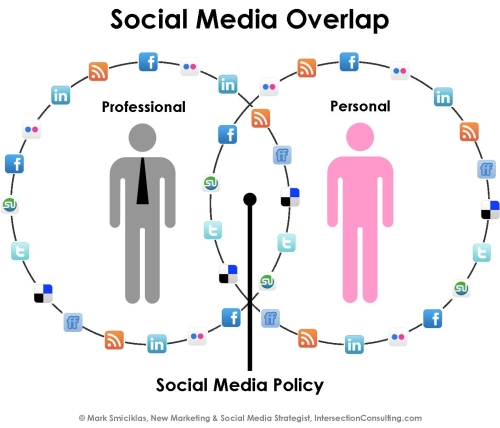Teaching - Seven Uniquenesses of the Teaching Profession
By Graysen Walles
No One Can Do What You Do.
Who can do what you do? The reason a shortage exists in the field of teaching is simply because few can do what you do. The teaching profession is profoundly unique. In some areas of the country, a shortage is impacted by economics; other places are effected by geography and weather. For the most part, metropolitan cities have fewer issues in recruiting teachers than smaller, less populous locations. Nonetheless, the field of teaching is unique and shortages prove that few have the calling and desire to do what more than 3.1 million public and private educators are already doing. Let's look at some of the reasons teaching is unique and why shortages are common across the country, specifically in specialized subject areas such as science, math, and special education.
There are seven ways in which teachers/educators are unique professionals:
First, we've already established the fact that
teachers embrace the field of education as a calling not as a job. Let's face it, teaching is a very complex and demanding career that requires teachers to be managers of people, analyzers of data, and researchers of best practices and instructional methodologies-and these skills are utilized each day. In any other major profession that required the same unique qualifications, teachers would make significantly more money. Undoubtedly, the salaries for teachers must be reexamined and adjusted to reflect the uniqueness of the profession and provide balanced scales for all teachers, whether they work in a big city or a small town or country hamlet.
Second, teachers are also unique because the profession is now driven by so much data.
Teachers must now be statisticians and researchers, fully accountable in some form or fashion for managing data in the areas of assessment, attendance, graduation rates, discipline percentages, and gifted and special education progress. The administrative responsibilities of the teacher have definitely increased, but the resources necessary to make the management of these duties efficient are minimal. The new demand for data is needed, and critical to enhancing results, but resources are likewise needed to help teachers be effective and efficient in collecting, examining, and utilizing the data.
Third, teachers are
required to be learning and behavioral specialists and to be able to apply differentiated instruction. Differentiated instruction is a newly celebrated philosophy, and a mandate for all teachers, that requires teachers to find effective teaching strategies that will meet the needs of students with different learning styles, all in the same classroom at the same time. Teachers must, then, be competent and active in enlisting the unique resources and skills necessary to meet the needs of kinesthetic, visual, and auditory learning styles. Additionally, the special challenges of addressing emotional behavioral disorders, learning disabilities, and attention deficit problems-all in the same classroom-broaden the gap between teachers and managers. Today's teachers are practitioners, researchers, and change agents; but, none of these unique skills are recognized or rewarded.
Fourth, continuing on the same theme, teachers must
work with every child, despite the challenges of that child. In nearly every other profession, management is able to pick out the bad product or the poor employee so that productivity and quality can be increased. Educators do not have that same luxury. Instead, public education demands that every child be given the resources and opportunity to succeed. This includes those students who truly want to learn and will become good "products" and those students who get energized from wreaking havoc and chaos in school by fighting, dealing drugs, taking part in gang activity, or constantly disrupting classes.
Instead of weeding out the bad students, educators are required to manage all situations, to provide alternatives to parents, and to somehow effectively guide troubled students through the educational process. And teachers realize that they must do so, regardless of social and economic situations and, in some cases, the lack of positive parental guidance that might influence the behavior of the student. What becomes most frustrating is recognizing that, if these challenging students refuse the positive alternatives, they may end up dead, in jail, or in a hospital or wallowing in a continuing cycle of poverty. No one gets into teaching to celebrate such a potential loss of lives and potential. Teachers get into the business to change and enhance lives-uniquely, and one by one, as needed.
Fifth, teachers are unique because the line of
accountability in education has many levels and tangents. This accountability is not necessarily a bad thing, but it has added to the complexity of teaching. In one way or another, teachers are impacted by the federal government, a state department of education, the local school district, and administration at their school. What does this mean for teachers? It means that the results of classroom practices go far beyond the classroom, students, parents, and principals. I can't name another career field that has as many accountability variables and levels as does the field of public education. As a teacher-educator, be aware that your individual results in the classroom are data and will be analyzed as data and that those results will be evaluated in ways that are unique to the field of education. Your successes or failures in the classroom, as reflected in the data, will impact your longevity in the field of education.
Sixth, educators are unique in that
no other professional group manages so many people and is so responsible for individual progress. Teachers work with up to one hundred and eighty students or more each day and are required to ensure that each of those students succeeds academically. Young people, from the ages of four to twenty, are instructed, counseled, directed, nurtured, motivated, inspired, and coached by teachers-a cycle that continues until high school graduation, in best-case scenarios.
You may be surprised to know that children spend more time at school than they do awake at home and that children are influenced by more adults in school than in any other social circle. That makes the public school system the single most influential force on children-more so even than church. Teaching, then, is a unique career that is faced with high liability and tremendous responsibility-because real lives are dependent on competent and professional adults. These demands are tremendous, and very few people can meet them successfully.
Lastly, teaching is unique because it is the
only profession where the federal government has mandated absolute perfection. Specifically, the No Child Left Behind Act requires that all children-that's 100 percent-reach proficiency on state level assessments. Between the lines, this legislation essentially requires teachers to provide effective and rigorous instruction, which will hopefully translate into providing the necessary skills and information sets so that students can be literate and competent. However, the mandate that all students be made to pass assessments is largely unrealistic because of unforeseen and calculable variables that prohibit the attainment of such a goal. Yes, the goal is lofty, but it is worthy. The expectation that teachers teach is warranted. At the end of the day, we all know that students must be able to think and apply their knowledge in real life. After all, primary and secondary schooling is a training ground with the ultimate goal of preparing young people to successfully navigate college, a profession, and the world of adults. But the attainment of such an idealistic goal as what is outlined in No Child Left Behind creates an all-consuming stress that has hurt and will continue to hurt the teaching profession if not taken in stride.
As this federal policy stands, I expect it to cause numerous educators to leave the profession-not one scientist or researcher would ever purport to achieve 100 percent accuracy on any research or experiment due to variables. Even 99.9 percent acknowledges the influence of some variables, even if it is only 0.1 percent. Yet, in the world of education, teachers must live with and comply to that unrealistic federal mandate or find a new line of business, which could be extremely detrimental to hundreds of districts across the country.
So, yes,
teaching is unique, and it requires educators to be multi-faceted and multi-talented. It is my strong belief that very few professions demand what is required of teachers in the public sector. The demands are not necessarily bad, but they are indications of the complex nature of the teaching profession. Those who are cut out for this unique profession are called, often naturally skilled or highly and thoroughly trained, and committed to success. And, no, not everyone is cut out for a career in the most challenging occupation on the planet. It also requires an awareness of self. And, it is not for the weary. No, not everyone can do what teachers do. Join the movement - The Teachers Movement and make a difference.
Dr. Graysen Walles
Author, Reasons to Keep Teaching: The Greatest Career on the Planet
http://theteachersmovement.com
Article Source: Teaching - Seven Uniquenesses of the Teaching Profession
















